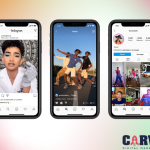Everybody knows about the Influencer. For people who don’t know about it. They are public figures in a particular field. He/she may be running a Youtube channel or Instagram page with big numbers in followers. Those persons can be available to carry out any promotional activities like pushing the new brand or its products to the followers they own. They charge a particular amount of money for doing this.
This is all a general view. But when doing this, brands face a lot of headaches. They don’t know much about who is the best one for contacting, budgets asked by them, creatives demanded from them, infusing the brand message with their ideas etc…
In this blog, we covered the best tips to easily handle the influencer promotions.
Why use influencer marketing?
Reach a wider audience. Influencers have large followings on social media, which means you can reach a wider audience with your marketing message.
- Build trust and credibility. When people see their favourite influencers using and recommending your products or services, they are more likely to trust you and your brand.
- Generate leads and sales. Influencer marketing can be a great way to generate leads and sales. When people see their favourite influencers using your products or services, they are more likely to be interested in learning more about them and making a purchase.
- Increase brand awareness. Influencer marketing can help you increase brand awareness by getting your brand in front of a new audience. When people see their favourite influencers talking about your brand, they are more likely to remember it and be interested in learning more about it.
- Improve your social media engagement. When you work with influencers, they can help you improve your social media engagement by sharing your content with their followers and encouraging them to interact with it.
- Get creative with your marketing. Influencer marketing allows you to get creative with your marketing and come up with new and engaging ways to reach your target audience.
1. Define your goals and target audience
Define your goals. What do you want to achieve with your influencer marketing campaign? Do you want to increase brand awareness, generate leads, or drive sales? Once you know your goals, you can start to target the right influencers for your campaign.
2. Research your influencers
When researching influencers, there are a few key things to keep in mind:
- Their audience. Make sure that the influencer’s audience is a good fit for your brand and your target audience. You can do this by looking at the demographics of their followers, the types of content they engage with, and the hashtags they use.
- Their engagement rate. The engagement rate is a measure of how much interaction their followers have with their content. A high engagement rate is a good indicator that the influencer has a genuine following and that their content is engaging.
- Their niche(field). What kind of content do they create? What are their interests? Make sure that the influencer’s niche is a good fit for your brand.
- Their reach. How many followers do they have? A large following is not always the most important factor, but it is something to consider.
- Their authenticity. Do they seem genuine and authentic? Do they seem like they are genuinely interested in your brand and your products?
- Their cost. How much do they charge for sponsored posts? This is an important factor to consider, especially if you have a limited budget.
3. Choose quality over quantity
When it comes to influencer marketing, it is important to choose quality over quantity. This means working with a smaller number of influencers who have a genuine connection with your brand and your target audience.
There are a few reasons why it is important to choose quality over quantity:
- Engagement. A smaller number of influencers with a genuine connection to your brand will typically have higher engagement rates. This means that their followers are more likely to see and interact with your content, which can lead to better results for your campaign.
- Authenticity. When influencers are genuinely interested in your brand and your products, it shows in their content. This can make your campaign more authentic and believable, which can lead to more conversions.
- Cost-effectiveness. Working with a smaller number of influencers can be more cost-effective than working with a large number of influencers. This is because you can negotiate better rates and get more personalised attention from the influencers.
4. Set clear expectations
Setting clear expectations is essential for any successful influencer marketing campaign. This means being clear about what you expect from the influencer, what they can expect from you, and what the overall goals of the campaign are.
Here are some of the things you need to be clear about:
- The type of content you want the influencer to create. This could be a blog post, a video, an Instagram post, or something else.
- The hashtags you want the influencer to use. This will help you track the performance of the campaign.
- The disclosure requirements. In most countries, influencers are required to disclose when they are working with a brand. This is to ensure that their followers are aware that the content is sponsored.
- The timeline for the campaign. When do you need the content to be created and published?
- The budget. How much are you willing to pay the influencer?
- The rights to the content. Who will own the rights to the content after it is created?
Related – How Online marketing helps business in this pandemic – CarvSEO
5. Track your results
Tracking your results is essential for any successful influencer marketing campaign. This will help you to see what’s working and what’s not, so you can optimize your campaigns for future success.
Here are some of the metrics you can track:
- Reach: How many people saw the influencer’s content?
- Engagement: How many people interacted with the content (likes, comments, shares)?
- Click-through rate (CTR): How many people clicked on the links in the content? How much traffic is driven?
- Conversion rate: How many people took the desired action (e.g., made a purchase, signed up for a newsletter)?
- Brand awareness: Did the campaign help to increase brand awareness?
- Sentiment: What was the overall sentiment of the comments and reviews?
Hope this helps you for setting up the Influencer campaign in the right direction. If you don’t have any team or people to handle influencer marketing, reach out to us. We take care of the juggling smoother and easier on the go.








